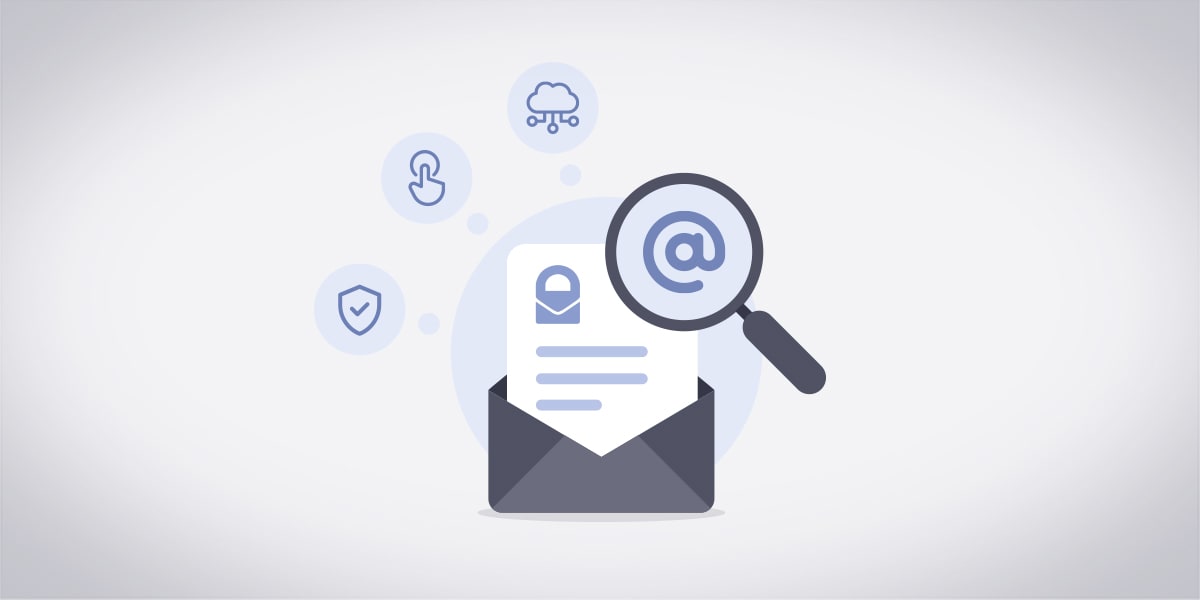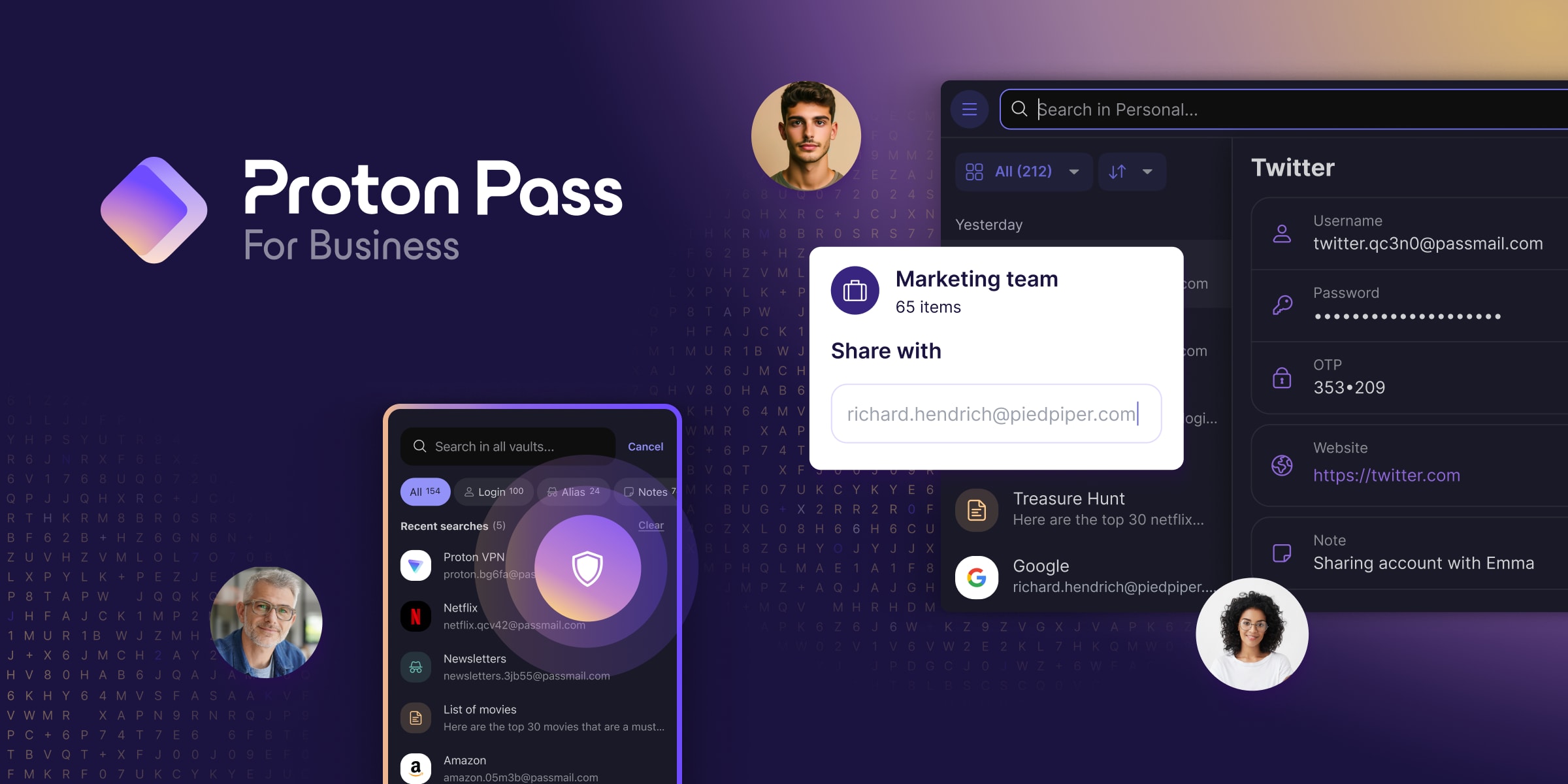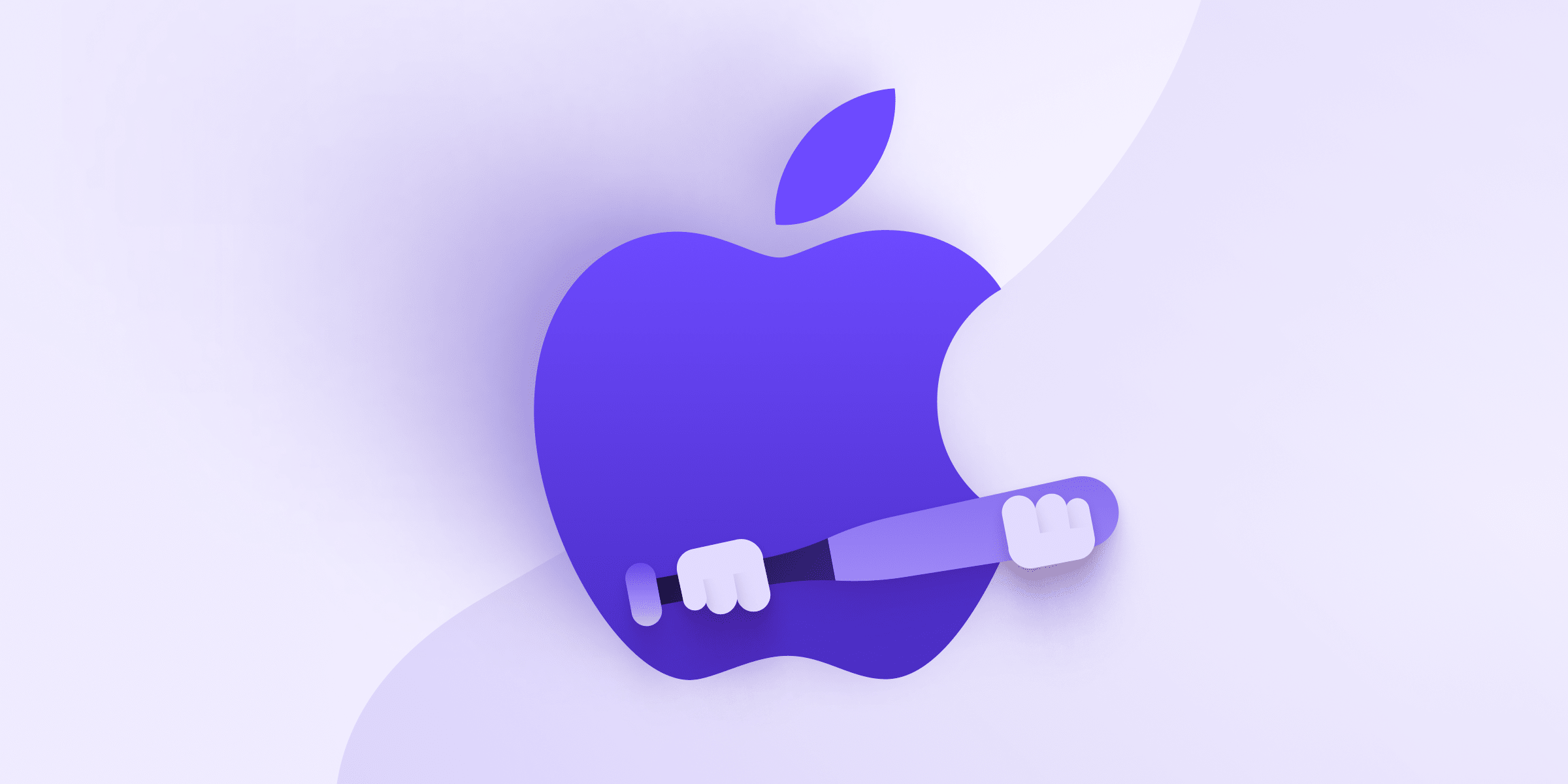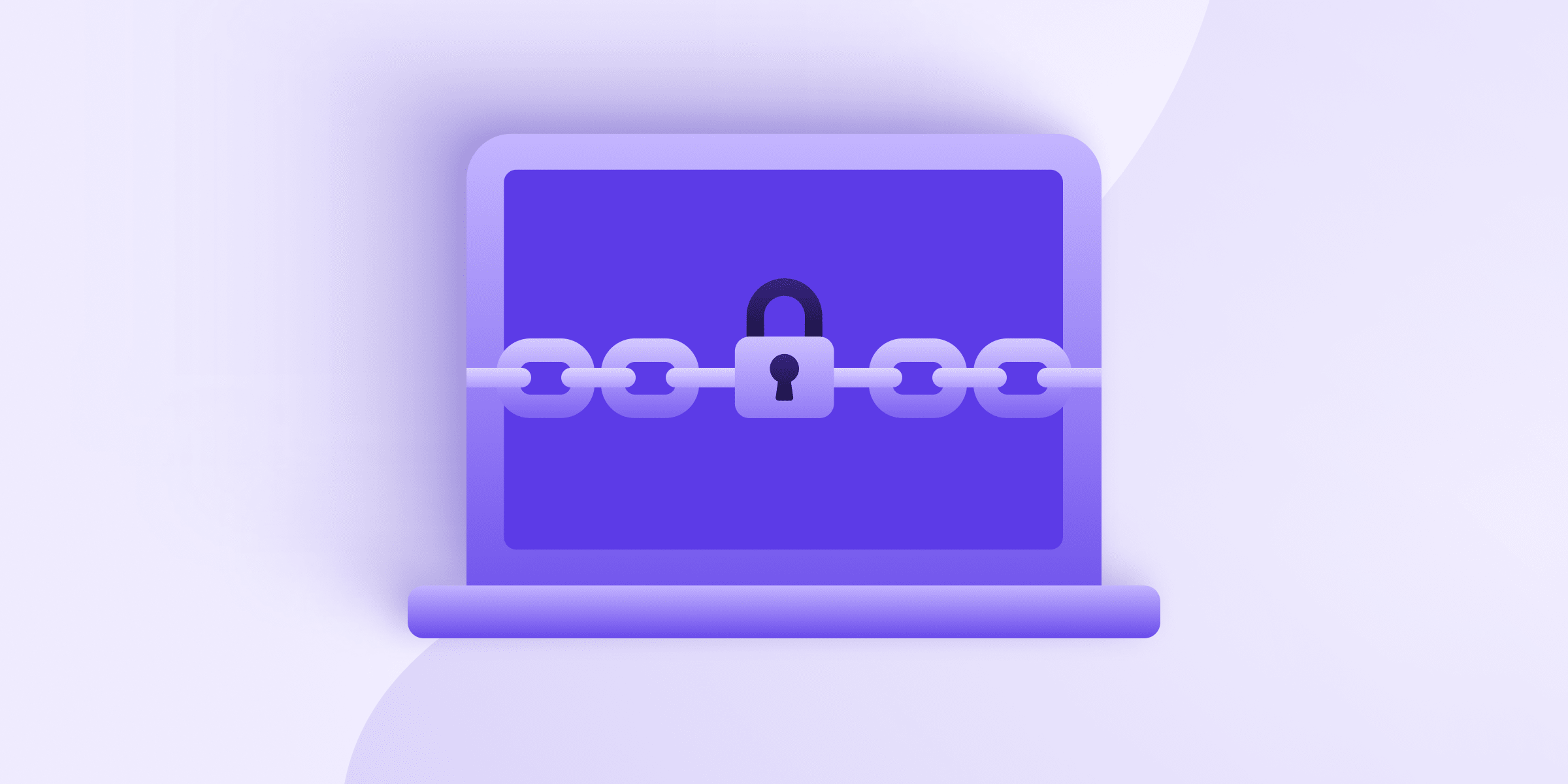Modern business email tools are often built to get you in and out of your inbox as fast as possible, keeping you informed and organized. Often, however, this efficiency comes at the cost of privacy and security. You also need an email provider that helps keep your sensitive data secure, not one that is a security risk in itself.
This is important because businesses — especially small- and medium-sized enterprises — are consistently targeted by hackers(new window).
How should you structure your analysis of choosing the right email provider for your business?
Choosing your email service is a critical step for your business. It is one of the primary ways you communicate, both internally and with clients and customers.
We created this article to help you make this decision in a more structured way. Along the way, we provide information about Proton’s secure business email(new window) to help you understand the capabilities of our service, but the checklist of criteria we have provided is applicable to any email service provider you are considering. While we hope you will consider Proton Mail, our objective here is to help you make the best decision for your businesses.
Getting started
We recommend prioritizing the features you need around seven categories. Clicking any link here will take you straight to that section:
- Compatibility and ease of use
- Security
- Spam, phishing, and malware filters
- Storage
- Compliance and support
- Migration
- Cost
We also suggest understanding a few things about your current usage to keep in mind as you explore other providers’ options. This will help you stay focused on what matters most to you and your team.
- Do your employees use a certain email client (e.g., Outlook, Apple Mail, etc.)?
- Do you currently have multiple email addresses (personal and professional email addresses) that you access from one email app on your phone?
- Are you open to changing email apps on your phone?
- Do you use your phone’s default contact app to manage contacts, including ones you send emails to?
- Does anyone in your organization currently use subfolders to organize their inbox?
- Does anyone in your organization currently share an email mailbox or address with multiple people (e.g., contact@)
- Does anyone in your organization currently have emails automatically forwarded to another email address when they are received (e.g., when a colleague is out of the office or to forward messages to backups/CRMs/helpdesk)?
- Do you have organization-wide distribution lists (e.g., sales@mycompany.com sends an email to everyone on the sales team)?
If you need any assistance, you can always speak directly with someone on our business support team by writing to business@proton.me.
Compatibility and ease of use
Employees often have different levels of savviness when it comes to technology. You will want to choose an email service provider that is easy for your team to adopt and merge with their current workflow.
- User interface: You can reduce the learning curve and streamline onboarding by choosing an email provider with an intuitive user interface.
- Desktop apps: Are your employees already using desktop clients like Outlook, Apple Mail, or Thunderbird?
- Mobile apps: Agile and remote-working teams should be equipped with email mobility.
Being easy to use encompasses more than just a smart, intuitive user interface. Your email provider should have apps that your employees can use on their mobile devices so they can still work even if they’re on the move. It should also be able to integrate with IMAP/SMTP email clients to make it easier for your employees that are more comfortable with Outlook or Mozilla Thunderbird.
What to look for
- How many email users can your provider support?
- Is its user interface intuitive and easy to understand?
- Is it available on all your employees’ devices?
- Does it integrate with other email clients and across platforms?
- Does it restrict the number of emails your organization can send in a day?
Proton Mail compatibility and ease of use
Proton Mail has been tested in all types of corporate environments, large and small, and our Proton for Business plans can support teams of any size. Our email applications are designed to be clean, pleasant, and easy to learn. Encryption is automatic, and security features are built-in.
Getting started with Proton Mail is hassle-free with Easy Switch(new window), which quickly and securely transfers your emails and folders from your old provider.
Our apps for Android and iOS devices have intuitive interfaces and allow you to quickly respond to emails and manage multiple accounts while you are on the go.
Proton Mail Bridge(new window), which is a desktop app that runs in the background of your device, lets you add Proton encryption to email clients like Outlook, Thunderbird, and Apple Mail.
Security
Team communications should be end-to-end encrypted(new window), meaning only the sender and recipient can see the contents of the messages. That way, if a data breach occurs, no unencrypted information would be exposed to hackers or the public. While encryption is a non-negotiable baseline for choosing an email service provider, you must also consider each provider’s privacy policies.
What to look for
- How do they handle user data?
- What encryption is used?
- Is their code open source?
- Are the apps independently audited?
Proton Mail security
Proton Mail uses end-to-end encryption(new window) at all stages of message transmission. We also use zero-access encryption(new window), which means no one can access your inbox without your password, not even Proton. If data falls into the wrong hands, it will be indecipherable.
All of Proton Mail’s cryptography and user apps are open source(new window), meaning the entire cryptographic community can independently audit our security methods.
Spam, phishing, and malware filters
Businesses must protect themselves against time-wasting spam and system-compromising phishing attacks(new window). Phishing makes up more than half(new window) of all security threats facing organizations today. With the proper protections in place, your business will be safe from information leaks and financial attacks.
While protecting your inbox seems simple, many providers fail to offer the level of protection necessary. The process of filtering out spam, phishing, and viruses is complicated and requires sophisticated tools.
Two important anti-spoofing(new window) tools you should look for are DKIM and DMARC.
Domain Keys Identified Mail (DKIM)(new window) cryptographically verifies that an email was sent by a trusted email address, making it harder for attackers to spoof your domain(new window).
Domain-based Message Authentication, Reporting and Conformance (DMARC)(new window) is a failsafe that instructs your email server what to do in case an email you receive fails DKIM, making it harder for attackers to fool you with a spoofed email.
What to look for
- How does your email provider protect your custom domain from being spoofed(new window)?
- What protection does your email offer against phishing attacks(new window)?
- Do they provide their own spam filtering, or are you required to use a third party?
- Do they allow you to customize your spam filtering via whitelists and blacklists?
Proton Mail filters
Proton Mail uses smart spam detection, spam lists, WKD, DANE(new window), DMARC, SPF(new window), and other powerful tools(new window) to ensure any messages that reach your inbox are clean. Teams using any Proton for Business plan(new window) can take advantage of multiple email addresses per user to keep private addresses secret and end-to-end encryption to be sure messages are sent to and from those originally intended.
Storage and features
The amount of storage you will need depends on the size of your team. As your team may change over time, it’s a good idea to future-proof your email infrastructure by choosing a provider that has storage expansion options. B2B providers often limit certain elements of storage. Always be sure to check for limits on the number of users, addresses per user, gigabytes of storage per user, and organizational features like folders and tags.
What to look for
- How much storage will each team member be given?
- Are there limits on the features that affect team productivity?
- Does your email provider offer any other services?
- How many email users do you currently have in your organization?
- How much storage do your email users currently use for their inboxes?
- Do you send marketing email blasts through your email? If so, do you have a separate provider in mind to send these emails?
- Do you handle support requests through email? If so, how many on average per day?
Proton Mail storage and features
The Proton Business plan(new window) gives each user 500 GB of storage, 15 addresses per user, and unlimited message sending. It also enables user hierarchy, which provides admins with the ability to monitor and maintain privileges across an entire company.
The Proton Mail apps for Android(new window) and iOS (new window)both offer multi-account support, making it easy for your employees to toggle between their different work emails. Proton Mail also offers Proton Contacts(new window), a personal, encrypted contact database, and Proton Calendar(new window), an encrypted calendar, for every user on the team.
Compliance and support
Some email service providers may boast strong features but fall short on compliance with privacy and data management regulations. Regulatory compliance shows that a provider takes your security seriously and isn’t just trying to market features with empty promises.
If your team deals with sensitive health data, your emails may need to be HIPAA compliant(new window). If you have users in Europe, your team will need to comply with the GDPR privacy laws(new window). The last thing you want to deal with is legal recourse for mishandling sensitive data, which could threaten your company’s reputation.
Where compliance covers your team externally, customer support provides a safety net internally. If you have trouble with your email provider, you want to know that your issue will be heard and dealt with promptly.
What to look for
- How good is your new email provider’s customer support? Will you be put in touch with real people?
- Does it offer options that are HIPAA and GDPR compliant?
Proton Mail compliance and support
Proton Mail is HIPAA(new window) and GDPR compliant(new window), verified by openly available and transparent legal statements. The service is backed by strict Swiss privacy laws that forbid access to user data and prevent snooping from governments.
Proton provides friendly, fast, and reliable support for all teams on a Proton for Business plan with dedicated support channels for business users.
Migration
Your emails are an important business record, so before you can completely transition your business to a new email service, you’ll need to migrate your old emails and conversations. This can seem like a daunting task, especially when it is added to your already busy workload. You should always make sure that any email service you are considering has tools that simplify this process.
What to look for
- Does your new email provider have dedicated tools that allow you to select and organize which emails you transfer?
- Does it allow you to transfer emails in the background while you work?
- Will they handle the transfer process for you?
Proton Mail migration
With Proton Mail Easy Switch(new window), you can quickly and easily migrate all your important conversations yourself. And if your company is above a certain size, Proton Mail will handle migrating your emails for you.
Cost
Business email pricing is highly variable, ranging from free to as much as $20/month for some providers. The total cost is usually contingent on a number of factors, including the number of users, the amount of storage, sending and attachment limits, and custom domain options.
What to look for
- What are the “costs” of a free service (e.g., ads, privacy, etc.)?
- Does the price include other connected apps, or are these paid separately?
- If your organization grows, does the pricing offer scalability?
- Does the service require a long-term contract?
Proton Mail cost
Our popular Proton Business plan starts at $9.99 per user per month, including 500 GB of storage per user, 15 email addresses per user, 10 custom domains, unlimited folders and labels, unlimited filter rules, and priority customer support.
Our privacy and security features are standard for all Proton for Business plans. And with simple, cost-effective pricing per user, your Proton services can grow as you do.
Learn more about Proton for Business plans(new window)
The choice is yours
While there is a lot to consider, it all boils down to the specific needs of your business. Keep in mind the core tenets of stability, security, and ease-of-use, and you will be good to go.
Proton Mail was built with these tenets at its core. Our service is trusted by thousands of companies and millions of individuals worldwide.
If you are still not sure whether Proton Mail fits your team, feel free to write us at business@proton.me. Or share your feedback and questions with us via our official social media channels on Twitter(new window) and Reddit(new window).










